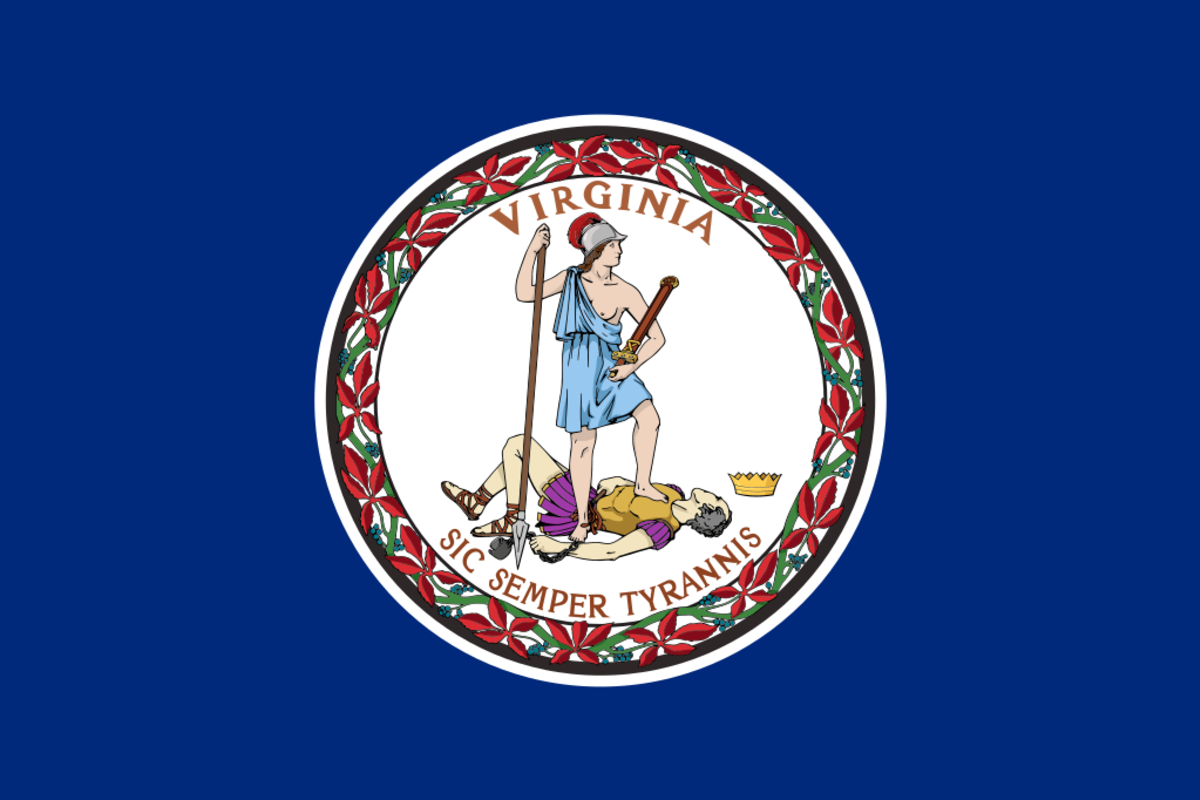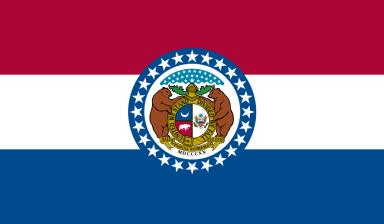Virginia Employment and Labor Laws

Virginia's diverse workforce of over 4.1 million individuals contributes significantly to the state's economy. While many find their work fulfilling and rewarding, they also face various challenges, including discrimination. In 2022, the Equal Employment Opportunity Commission received a staggering 2,271 claims, a 24% increase from the previous year.
It is crucial to distinguish between employment law and labor law when dealing with related matters. Employment law governs the relationship between employees and employers, while labor law upholds the rights of unions and their members.
This article delves into the intricacies of employment and labor laws in Virginia. It explores regulations on minimum wage, workplace discrimination, overtime pay, and wrongful termination, as well as discussing deadlines for filing complaints. If you are an employee, understanding these laws is essential for navigating the complexities of the workplace.
Virginia Wage and Hour Laws
Minimum Wage
Employees need to make $12 hourly, according to the minimum wage law in Virginia. This figure applies to employers until January 1, 2025. The law applies equally to small and large businesses throughout the state.
Keep in mind that some employees are exempt from the minimum wage regulations. These individuals include farm laborers, golf course caddies, taxicab drivers, and volunteers in non-profit organizations.
Tipped employees — those who regularly make over $30 monthly in tips — are not exempt from such laws. They can be paid at $2.13 hourly as long as their tips add up to the $12 per hour rate. If their hourly wage does not meet minimum standards, the employer needs to pay the difference.
One city in Virginia, Alexandria, runs a program that provides a minimum wage different from the statewide rate. It requires non-construction contractors who perform over $50,000 in services on city-controlled or city-owned property to pay their employees a living wage. This number is $15 hourly.
Failure to pay the minimum rate is wage theft. Individuals can file a claim with the Virginia Department of Labor and Industry to report businesses that steal from their workers. One needs to complete a form and submit the document by mail to the state agency.
Companies that violate minimum wage laws face penalties. These may consist of fines between $10 and $200.
Wage Payment
State labor laws dictate the frequency with which employees must be paid, with the distinction lying between salaried and hourly compensation. For salaried employees, employers are obligated to provide payment at least once per month. In contrast, those who receive an hourly wage must be paid either twice per month or once every two weeks.
Upon termination of employment, regardless of the reason (resignation, termination, or layoff), employees are entitled to receive their final wages on or before their next regular payday. This legal requirement ensures timely compensation for workers.
Payroll Deductions
Employers are obligated to make deductions from their employees' paychecks to cover various expenses. These deductions include state income taxes and wage garnishments, which are mandated by law.
For certain expenses, such as cash register shortages or damaged company vehicles, employers must obtain written authorization from the employee before deducting the costs from their pay. Uniforms may also be deducted with the employee's consent.
It is crucial to note that employment should not be contingent upon an individual's willingness to bear these costs. Moreover, deductions should not reduce an employee's pay below the minimum wage threshold.
Overtime Rules
Overtime pay is a legal requirement for employees who work more than 40 hours in a week. Under state law, it is calculated at a rate of 1.5 times the employee's regular hourly wage. However, certain employees are exempt from overtime pay requirements. These include:
Individuals who make at least $684 weekly.
Employees who work in outside sales.
Workers who are compensated a minimum of $107,432 annually.
Independent contractors are also not entitled to overtime pay. However, some businesses may intentionally misclassify employees as independent contractors to avoid paying overtime. This practice is illegal and can result in severe penalties for businesses. The consequences of misclassifying employees include:
Fines ranging from $1,000 to $5,000.
Disqualification from selling products or services to the state for a period of one to two years.
Businesses should ensure that they correctly classify their employees to avoid legal repercussions and uphold fair labor practices.
Sick Leaves
Virginia law mandates that employers provide paid sick leave to their employees. Employees accrue one hour of paid sick leave for every 30 hours they work. This accrued sick leave can be carried over to the following year, but employees cannot use more than 40 hours of paid sick leave in a single year. This limit, however, does not apply to employers who agree to a higher limit.
State law further specifies that leaves can be used by employees to recover from physical or mental illnesses. In addition, they may utilize paid leave to care for unwell family members.
Virginia Workplace Discrimination Laws
The Virginia Human Rights Act forbids discrimination against employers based on multiple factors. These include the following:
Sex.
Age.
Race.
Color.
Religion.
Disability.
Pregnancy.
Marital status.
National origin.
Gender identity.
Sexual orientation.
Childbirth or related medical conditions.
In addition to these protected characteristics, the concept of reasonable accommodation plays a crucial role in ensuring equal employment opportunities for individuals with disabilities. These regulations mandate that employers provide qualified individuals with disabilities access to tools or policies that enable them to perform their job duties effectively. Requests for reasonable accommodation should not be met with adverse reactions from employers.
Businesses can implement various practices to comply with these regulations, such as:
Providing light-duty assignments.
Modifying job-related tools.
Allowing employees to use leaves.
Keep in mind that these practices should not impose an undue burden on employers. In determining whether an accommodation is reasonable, employers consider various factors, including the health and safety impact on other employees.
Laws on Labor Unions in Virginia
Labor unions are organizations formed by employees seeking to enhance their voice in the workplace. Through this united voice, individuals can negotiate with their employers over matters like job training and workplace safety.
Virginia is a right-to-work state. In other words, individuals in the Old Dominion State are not compelled to apply for union membership as a prerequisite to employment. Those who do join unions have certain rights. These include:
Assisting unions in organizing fellow employees.
Accessing union-related publications and contracts.
Voting in union elections.
Unions, like their members, have certain rights under state law. These organizations can own and sell real estate. However, Virginia prohibits unions from resorting to violence or coercion when picketing. Additionally, unions representing hospital workers are not permitted to engage in work stoppages.
Virginia Required Posters in Workplaces
Employers need to place various posters in prominent workplace areas. These notices help employees gain awareness of their rights regarding matters like job safety and minimum wage. A few of these posters include:
A “Job Safety and Health Protection” poster.
A poster that shows laws regarding reasonable accommodations for pregnant individuals.
A poster that displays workers’ compensation laws.
An “Earned Income Tax Credit” poster.
Some notices apply to certain businesses. For instance, truck stops and adult entertainment companies must place a poster about human trafficking.
Is Virginia an At-Will Employment State?
Yes, Virginia is an at-will state. Employees are free to leave their jobs at any time. Similarly, employers can fire their workers whenever and for any reason. The at-will employment does not apply in some situations, however.
One example is discrimination. Businesses cannot terminate employees for reasons related to factors like disability, religion, or pregnancy.
Another situation where at-will employment laws do not apply is if workers sign an employment contract. These agreements limit the ability of employers to fire their workers without cause. If a business terminates an employee for a reason beyond what the contract says, that action may be considered wrongful termination.
What Qualifies as Wrongful Termination in Virginia?
Wrongful termination, also known as unjust dismissal, occurs when an employer fires an employee without a valid reason. Discrimination based on an employee's age, gender, or marital status is a prime example of wrongful termination.
Virginia law safeguards employees from dismissal under various circumstances, including:
Utilizing workers' compensation benefits: Employees cannot be terminated for exercising their right to workers' compensation benefits.
Refusing to engage in illegal activities: Employees have the right to decline to participate in unlawful acts without the risk of losing their jobs.
Fulfilling jury duty: Employees cannot be dismissed for fulfilling their civic responsibility as jurors.
Experiencing wage garnishment: Wage garnishment, a court order to deduct a portion of an employee's wages to pay debts, is not a justifiable ground for termination.
Employees who face retaliation for reporting employer misconduct can also claim wrongful termination. These individuals, known as whistleblowers, are protected under Virginia's Fraud and Abuse Whistleblower Protection Act. This law enables whistleblowers to seek compensation for their actions. In a notable case involving a McLean-based government contractor, a whistleblower was awarded nearly $70 million.
Employees who are terminated in retaliation because they reported wrongdoings of their employer can likewise claim that their dismissal is illegal. Individuals who bring illegal activities to light are known as whistleblowers. The state law Fraud and Abuse Whistle Blower Protection Act provides such individuals with a way to claim a reward for their actions.
Mass layoffs, another instance of potential wrongful termination, are subject to Virginia's Worker Adjustment and Retraining Notification Act (WARN Act). This law mandates that businesses notify employees of impending plant closures or mass layoffs 60 days in advance.
Understanding these protective measures is crucial, especially in Virginia, where layoffs and closures affected over 2,100 employees in 2022.
How Do You Report an Employer in Virginia for Wrongful Termination?
If an employee believes they have been wrongfully terminated, they have several options for reporting their employer:
Contact the Office of Civil Rights, a state agency that handles claims involving violations of the Virginia Human Rights Act and federal laws. It offers mediation services, conducts hearings, and can investigate your claim. One can reach it at 804-225-2292 or fill out a complaint form on its website.
File a complaint with the Equal Employment Opportunity Commission, a federal agency that enforces laws against employment discrimination. It also offers a voluntary mediation program. One can contact the EEOC's Richmond office at 1-800-669-4000.
File a complaint with a local Fair Employment Practices Agency, such as the Fairfax County Office of Human Rights and Equity Programs or the City of Alexandria Human Rights Commission. These agencies collaborate with the EEOC and the OCR to investigate and resolve employment discrimination cases.
In some instances, the decisions made by FEPAs, the EEOC, and the Office of the Attorney General may not be favorable to the affected employee. In such cases, they have the right to pursue legal action. Seeking the guidance of an experienced attorney can help individuals navigate the process of seeking damages.
What is the Statute of Limitations for Wrongful Termination Cases in Virginia?
The deadline for the submission of wrongful termination claims depends on the agency. For example, complaints must be brought to the Office of Civil Rights within 180 days of the alleged event. This number is different for claims submitted to the EEOC at 300 days.
Note that this 300-day deadline applies if the employer has 15 or more workers. If the business employs fewer than 15, the complaint needs to be submitted within 180 days.
FEPAs have a different timeline. One example is the OHREP, which accepts claims from individuals as long as they are filed within 365 days from the day of the supposed discrimination. Meanwhile, the deadline is 300 days for Alexandria's Human Rights Commission.
Other timelines vary depending on the situation, as shown in the table below:
How Much Can Someone Sue an Employer in Virginia for Wrongful Termination?
When an employer unjustly terminates an employee, the employee may file a wrongful termination claim, seeking damages to compensate for their losses. These damages fall into two main categories:
Compensatory Damages: These aim to reimburse the employee for both economic and non-economic losses incurred due to the wrongful termination. Economic losses may include medical expenses, job search costs, and lost wages. Non-economic losses may encompass emotional distress, reputational damage, and pain and suffering.
Punitive Damages: These serve to punish the employer for their egregious actions and deter similar misconduct in the future. Punitive damages are not intended to compensate the employee but rather to send a strong message to employers about the consequences of wrongful termination. Under state law, the maximum punitive damage award is $350,000.
In cases involving discrimination, a different set of damage caps applies, which vary depending on the size of the employer's workforce.
Resources for Employees in Virginia
The resources below link to state agencies in Virginia. These organizations may help with issues related to unemployment, like job search. Virginians can also use the links to obtain information on programs about assistive technology tools and energy assistance programs.
Virginia Employment Commission
The Virginia Employment Commission plays a crucial role in fostering economic growth within the state by providing services that empower the workforce. These include the unemployment benefits program, which offers financial assistance to workers who have experienced a reduction in hours or have been laid off.
The VEC also operates the Virginia Workforce Connection, an online platform that connects job seekers with employment opportunities tailored to their qualifications and salary expectations. For further information about these programs, individuals can reach out to the VEC at 866-832-2363.
Virginia Assistive Technology System
The Virginia Assistive Technology System helps those who have lost their jobs gain access to tools that enable them to fully participate in society. Through its library in Fairfax, VATS provides hands-on experience with various assistive software programs and devices.
Moreover, VATS operates an equipment exchange program, facilitating the acquisition of essential items like tub benches, scooters, walkers, wheelchairs, grab bars, and canes. To seek assistance from VATS, individuals can reach out to the organization by calling 804-662-9990.
Virginia Department of Social Services
The Virginia Department of Social Services offers a range of assistance programs to help eligible individuals facing financial challenges. One such program is the Virginia Energy Assistance Program, which provides financial aid to unemployed workers and other low-income individuals to cover their heating and cooling expenses. Additionally, the Low-Income Household Water Assistance Program caters to qualifying individuals struggling to pay their water and wastewater bills. To contact the department regarding these programs, call 804-726-7000 or email citizen.services@dss.virginia.gov.
Expertise.com StaffAuthor
Step into the world of Expertise.com, your go-to hub for credible insights. We don't take accuracy lightly around here. Our squad of expert reviewers, each a maestro in their field, has given the green light to every single article you'll find. From rigorous fact-checking to meticulous evaluations of service providers, we've got it all covered. So feel free to dive in and explore. The information you'll uncover has been stamped with the seal of approval by our top-notch experts.




